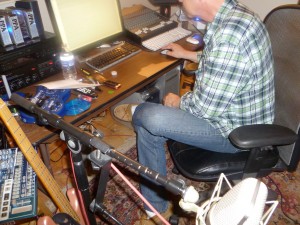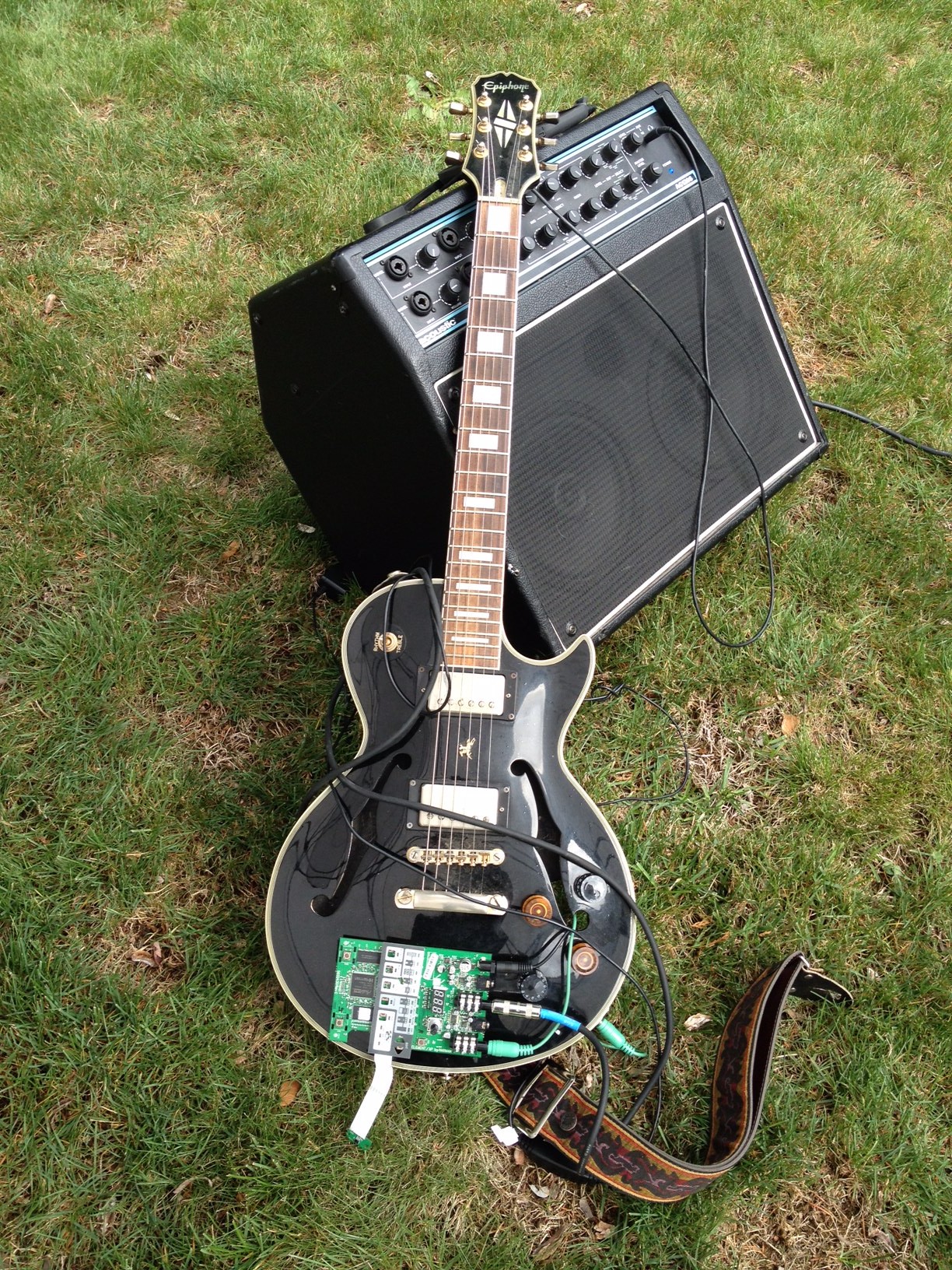 (From a guest blog post I made on my producer and partner Stevie Adamek’s website on 1/08/2012).
(From a guest blog post I made on my producer and partner Stevie Adamek’s website on 1/08/2012).
You’ve been a musician for a while, maybe been in a few garage or cover bands, and perhaps performed live around town. Recently you’ve begun trying your hand at writing your own original music. Now, you’re ready to take the next step and get your original material out there. A set of high quality demo tracks is the first step to getting visibility for your songwriting talents and musical capabilities. Most bands just get themselves recorded – not produced. I think that’s a mistake. There are many talented producers out there, and your original music can go from ho-hum to off-the-hook-competitive with good production. I’m going to cover what to look for in a producer, because in my experience, there are many people out there who call themselves producers, but don’t really provide the 360 degrees of services that a great producer does.
These days, it’s easier than ever to get yourself a copy of ProTools and record your own tracks. But learning any software package involves technical skills and a steep learning curve. It also takes more than just recording skills to make a fantastic demo CD. Even if you are savvy enough to be your own recording engineer (a complex skill), any music industry professional will suggest that you get your tracks professionally mixed, produced and mastered. Not to mention the fact that recording vocals and live rhythm instruments (piano, drums, percussion) requires skill and often specialized mics, unlike direct-inject (plug-in via cable) keyboad or guitar recording. A good producer should have excellent sound recording AND mixing skills. He or she should also be able to master your tracks or recommend someone experienced to complete that final step of the process.
In addition, there are a few things that truly separate a talented and experienced producer from the rest of the pack:
1. A great producer recognizes a marketable song in the raw, identifies blocking factors in your music or lyrics, and creates new arrangements that improve the presentation of your songs. He or she should be present at rehearsals as needed (BEFORE you record) to tweak and polish arrangements – and ensure everyone is fully practiced and ready to record. His or her objectivity is invaluable.
2. Along those same lines, a great demo track demands excellent musical performances from all involved. Unless you are a 100% solo artist (really? can you play everything?), be sure that everyone who performs on your demo tracks is as amazing a musician as you are. A good producer can help tactfully suggest musical lessons or coaching if he feels it’s needed for you or your band members. He or she is also extremely well-connected in the local professional music scene, and can bring in studio musicians (usually for a small fee) to play on your tracks as needed. Studio musicians are cheaper than you think these days. Working with professional musicians to back you up can make your tracks really outstanding. (A good producer can also recommend auxiliary support for you in the form of lawyers/managers/promoters if needed, but that’s probably not necessary until you’ve completed your demo CD.)
3. If your producer is acting as your recording engineer, he or she should schedule his clients promptly, be on time and already have all equipment set up and ready to record. In general, a good producer recognizes that both your time and his or her time is valuable. He or she always acts like a professional and is clear in communicating schedule changes. Because a good producer is busy with other people besides you, scheduling changes WILL happen. Like any consultant, the best producers are worth waiting for in terms of getting on their schedule – because they are in demand.
4. Transactions in the music industry often work on a smile and handshake. If you’re paying money to anyone, including a producer, however, I highly recommend that you have a written contract with a timeline, deliverables and price. Pay with a check, not cash. Your cashed check is your receipt. In any business deal, it’s important to understand that a contract is merely a snapshot of your mutual understanding at the time it is created – but it’s an important snapshot. In my experience, it’s critical for people to see things in writing to make sure everyone is on the same page (literally), and best prevent misunderstandings from the beginning. It could be as simple as an email, or a more complex Word document or Excel spreadsheet. Just make sure it includes the holy trinity of timeline, deliverables, and price. A contract is a tool for facilitating project management and codifying changes as they happen (and they WILL).
5. Most important, but sometimes easiest to forget: a great producer delivers final tracks that encompass your musical vision – but also expand and enhance it. If you have a musical vision for your songs, great – but if you need direction, cohesiveness, and/or refining of “your sound,” a great producer will step in to provide all of that, while still working closely with you to express your own inner vision. He or she doesn’t take over your vision, they work to help you fully express it.
Whether you work with Stevie or another producer, I hope you consider these 5 characteristics when hiring a producer, and may your music soar!




4 comments
Great advice thanx alot, im working on them straight away
all of the info was good but I need more for school
Hello Makhi – What school are you referring to? If you are looking for more articles on sound production, try this website: http://www.mixonline.com
Wao I love this.